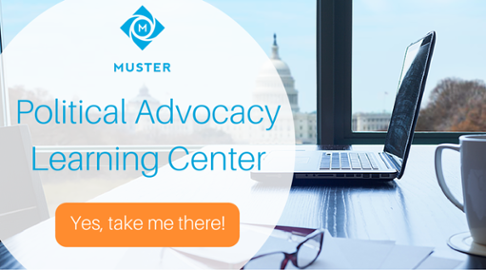In an election year rife with partisanship, media mayhem, and emotional public reactions to both the Democratic and Republican (presumed) presidential nominees, what can trade associations do to drive advocacy progress in the current political landscape? Focus on policy.
While constituents, advocacy groups, and 501(c)(4) political organizations cling to candidates in persona-centric debates, associations should inform their government strategy through policy, not based on a politicians’ rhetoric or candidates' promises.
Policy concerns and legislative issues drive associations to interact with the government to some degree or another. However, a presidential election year transfers the media and public spotlight from broader policy dialogue to a person/people: candidates. In a year where presidential candidates have attained a nontraditional, monumental level of celebrity, the policies they support have been overshadowed. Despite the media frenzy shrouding candidates and their every move, the policies they discuss will dictate the future of American lawmaking - not purely the candidates themselves. While policies are enacted by lawmakers and guided by executive politicians, the resulting product of political debate is policy- policy that will affect citizens, businesses, nonprofits, and every aspect of the economy.
Associations are an indispensable source of policy innovation, professional education and legislative advocacy and should maintain laser focus on policy at every stage of campaign development. Rather than looking to presidential candidates and individuals who are involved with legislative affairs in the government, associations should concern themselves with specific policy affecting their industry. Policies allow for both an associations’ industry to flourish or to fail. Policies are at the heart of the American political system, not the people controlling the system.
Associations should look at policy over policymakers to guide their participation in the political process, and continue to promote policy that fosters industry progress. As a result of association and nonprofit advocacy, policies change. Politicians come and go, but policies remain.
Policy creation is the backbone of our political system, and should remain the focus of associations throughout the election season, even as political battles between candidates become the center of public attention. Why do we care so much about trade associations and their role in the policymaking process? Muster is a nonpartisan company aiming to bridge the gap between associations and policymakers. Our mission is simple: equip associations with the digital tools to influence policy.
